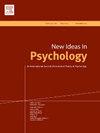信息、表征和认知
IF 2.9
3区 心理学
Q2 PSYCHOLOGY, EXPERIMENTAL
引用次数: 0
摘要
本文讨论了信息概念在认知理论中的应用,主要是基于意识作为信息加工的观点。自然信息的概念是对经典香农信息模型的补充,将信息概念的焦点从消息转移到整个通信系统。该模型提出:(1)信息本身不是某物,但总是与某物有关;(2)信息不是对象,而是关系;(3)信息是接口的紧急属性;(4)信息是给定实例的元素与另一个实例的元素连接、相关、产生或配对的子集;(5)信息存在于宇宙的所有组织层面,包括精神状态;(6)信息在物理上由与获取信息的实例相同的物质构成。我们引入信息的可编码和不可编码元素的概念来解释意义和质的出现。讨论了这些概念对意义的出现和自我结构的讨论的贡献。我们提出这个模型作为描述在新概念背景下定位经典思想和旧问题的心理过程中的信息处理的路线图。我们的模型仍在进行中,旨在帮助理解信息在计算、心理和社会环境中的作用。本文章由计算机程序翻译,如有差异,请以英文原文为准。
Information, representation, and cognition
This article discusses the concept of information in the context of its application in theories of cognition mainly those based on the idea of consciousness as information processing. The concept of Natural Information is presented as a complement to the classic Shannon’s information model by shifting the focus of the information concept from the message to the entire communication system. This model proposes that: (1) Information is not something itself but it is always about something; (2) Information is not an object but a relationship; (3) Information is an emergent property of interfaces; (4) Information is the subset of elements of a given instance connected, related, caused, or paired with elements of another instance; (5) Information is present in the universe at all organizational levels including mental states; (6) Information is physically made of the same substance as the instance that acquires the information. We introduce the concepts of codable and non-codable elements of information to account for the emergence of meaning and qualia. The contribution of these concepts to the discussions about the emergence of meaning and the structure of self are discussed. We propose this model as a road map to describe information processing in mental processes locating classic ideas and old problems in the context of new concepts. Our model is still a work in progress aiming to contribute to the understanding of the role of information in computational, psychological, and social contexts.
求助全文
通过发布文献求助,成功后即可免费获取论文全文。
去求助
来源期刊

New Ideas in Psychology
Multiple-
CiteScore
4.80
自引率
3.80%
发文量
37
期刊介绍:
New Ideas in Psychology is a journal for theoretical psychology in its broadest sense. We are looking for new and seminal ideas, from within Psychology and from other fields that have something to bring to Psychology. We welcome presentations and criticisms of theory, of background metaphysics, and of fundamental issues of method, both empirical and conceptual. We put special emphasis on the need for informed discussion of psychological theories to be interdisciplinary. Empirical papers are accepted at New Ideas in Psychology, but only as long as they focus on conceptual issues and are theoretically creative. We are also open to comments or debate, interviews, and book reviews.
 求助内容:
求助内容: 应助结果提醒方式:
应助结果提醒方式:


